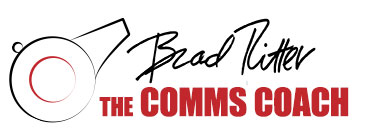With apologies to The Bard, “To speak, or not to speak?” is one of the biggest decisions organizations must make when dealing with difficult issues. More times than not, corporations put out media statements rather than provide spokespersons. GM, Ford, Sellantis and Kaiser Permanente are top of mind right now given their labor issues.

There are times when I recommend statements over interviews. They are easily approved, they keep the lawyers happy and there is no room for misinterpretation. On the other hand, prepping a spokesperson takes time and work, and reporters decide what gets published or aired.
Statements, however, have shortcomings. When trouble strikes, organizations are viewed as either heroes or villains. Consider that the number one success factor in managing issues is empathy. No matter how well written a statement, a few words in an online story or in a TV graphic pale compared to a good interview delivered by a caring spokesperson.
Offering only a brief statement also gives “the other side” control of the story. Think about recent strike coverage. Stories typically were built around images of picketers and interviews with emotional employees, with brief, often very sterile, company statements toward the end.
Organizations that care about their reputation need to carefully consider using a well-trained spokesperson to tell their story, instead of relying on a few words emailed to a journalist or posted online.
Your next challenge or opportunity may be around the corner. Contact me today to get your spokespersons ready.
